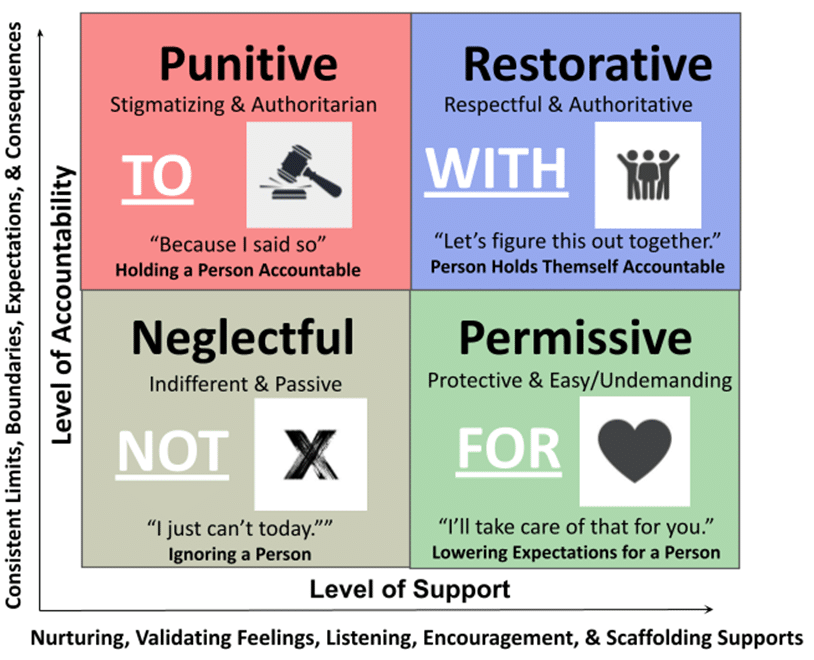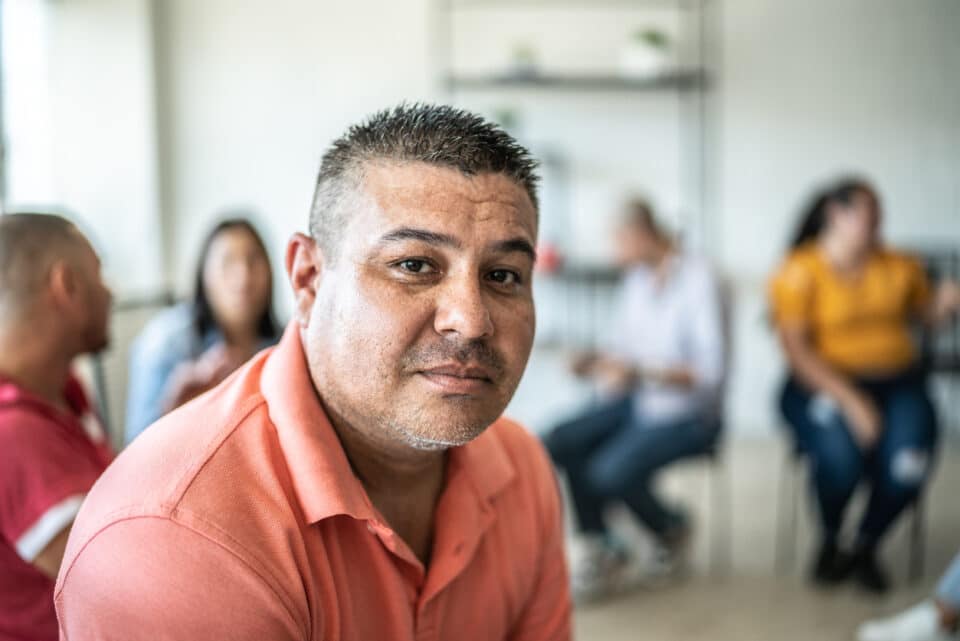Restorative Justice
The restorative justice initiative seeks to shift the focus of the criminal justice process away from blame, shame and punishment in favor of an approach that focuses on compassionate, supportive accountability, healing and transformation for all. This process brings victims and their families face to face with those who have inflicted harm on them in an attempt to discuss the impact of what happened and determine the best way to repair the harm to those affected.
Public defenders need many tools to best serve our clients. While most of our tools are designed to make us the most tenacious criminal defense attorney teams by fighting against government prosecution, restorative justice (RJ) offers us a tool to advocate by fighting for compassionate accountability and healing. RJ is not be appropriate for all clients but RJ is an option recognized by the criminal legal system.
What is Restorative Justice?
Within the criminal legal system, RJ is a process where the person who caused harm (accused persons) and the person or people who were harmed (crime victim(s) or survivor(s)) voluntarily meet face-to-face to discuss what happened, the impact, and how best to repair the harm to the greatest extent possible.
The most common RJ processes used in conjunction with the criminal legal system in Colorado are community group conferencing and high impact dialogue (also known as victim offender dialogue or victim offender conferencing in CO law).

Importantly, RJ is also available completely outside the legal system to serve the majority of crime victims and survivors who do not engage the carceral system. See Alliance for Safety & Justice, Crime Survivors Speak Report (2016); see also CCJRC, Victims Speak: Better Understanding the Needs & Experiences of Crime Survivors (April 2018).
OSPD is part of a collaboration funded by the state Restorative Justice Council to support system-level change and offer education, training, & technical assistance to defense attorneys, prosecutors, judges, victim advocates, and other criminal system actors to expand the use of RJ in Colorado.
Colorado also has more RJ laws than any other state in the country. Most of the 40+ statutes relate to the juvenile and criminal legal system. These statutes build a comprehensive legal infrastructure for using RJ at each stage of the juvenile and criminal legal system continuum – during diversion, plea proceedings, sentencing, probation, and corrections.

Restorative Justice Movement
While many people believe our existing carceral system is the traditional form of justice, community restorative justice is the most common form of justice over the history of humankind. With roots in indigenous peoples and practices across the globe, the modern RJ movement in the United States began in the 1970s when Howard Zehr reintroduced it in the probation context.
Since at least the 1990s, Colorado has explored RJ practices by implementing both community-based and agency-based programming (i.e., law enforcement, district attorneys, probation, Department of Corrections). Today, local RJ programs are scattered in communities & agencies across the state, quality facilitators/practitioners are willing to travel statewide, and the legislatively-created Colorado RJ Council has a mandate to support RJ practices and programs.
